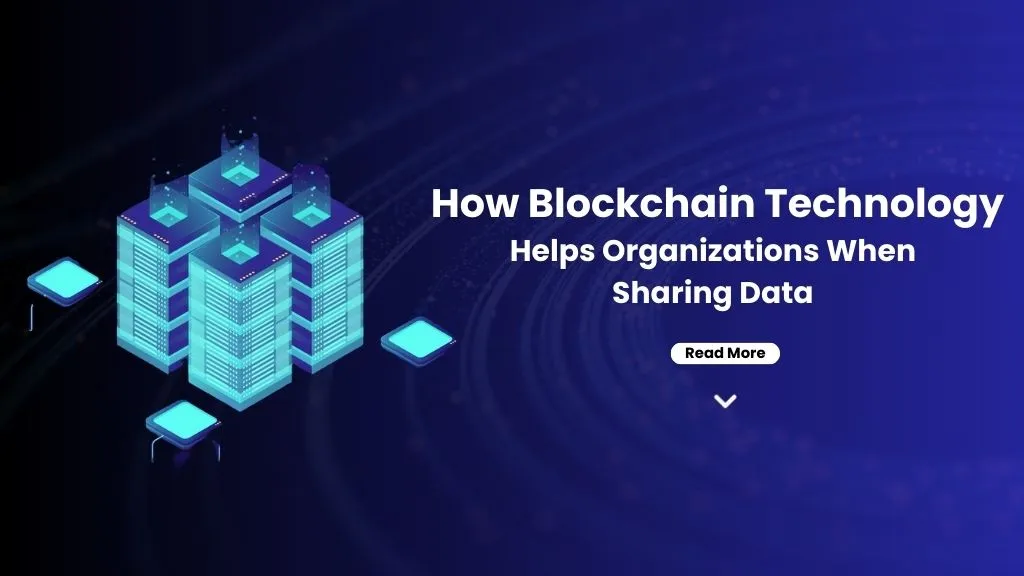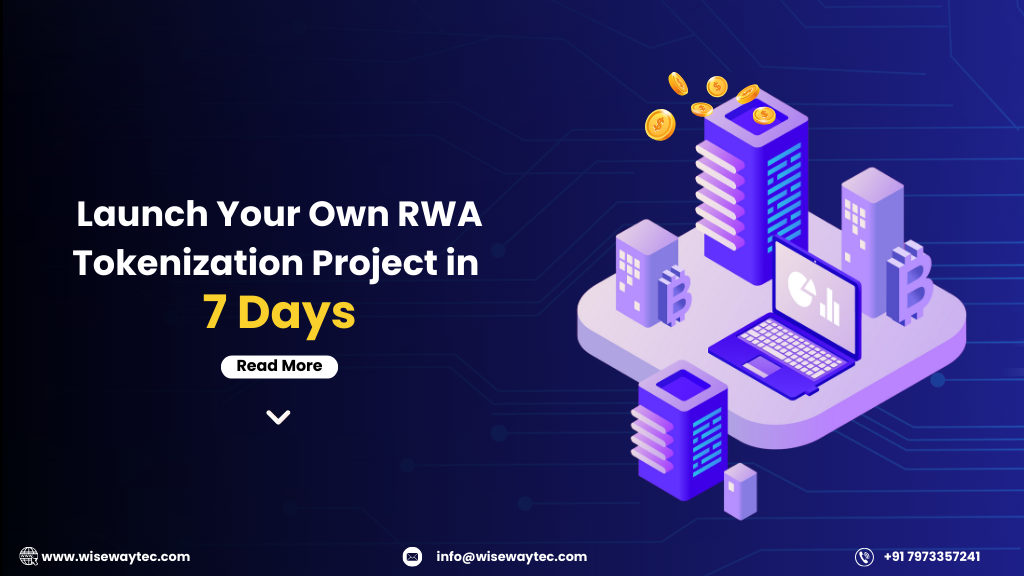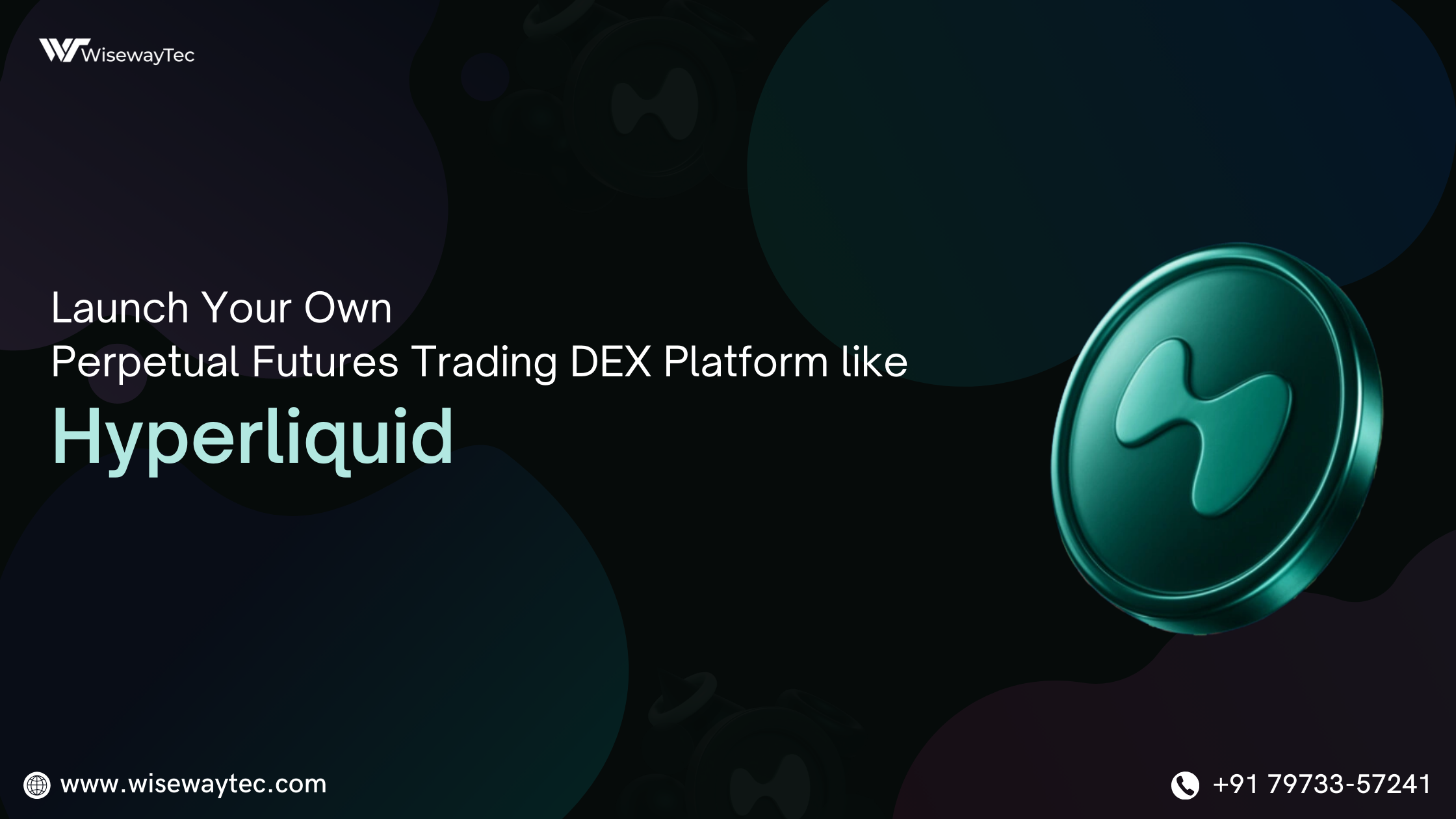In a world where data is the new money, protecting, sharing, and managing it has become the most difficult problem of our digital age. As enterprises grow more networked and data travels across countries, industries, and departments, the demand for the best blockchain technology to provide security, transparency, and efficiency has never been greater. As the volume of data grows, so do the challenges of sharing it safely, precisely, and in ways that retain confidence among systems and stakeholders. Organizations are increasingly looking for more trustworthy, efficient data sharing in blockchain techniques, ranging from preventing data breaches to overcoming the limits of legacy systems.
This is where blockchain technology comes in as a disruptive solution. Blockchain, which was originally built to power cryptocurrencies such as Bitcoin, has well beyond its initial use case and is now transforming industries by providing a decentralized, secure, and transparent method of data management and exchange. By choosing the best blockchain development company, businesses can ensure that their operations benefit from cutting-edge solutions tailored to their specific needs.
In this blog, we’ll look at the common difficulties blockchain addresses, how it alters operations, and how businesses may leverage its ability to work with confidence and security.
Why Traditional Data Sharing Methods Are No Longer Enough?
In today’s interconnected world, enterprises must be able to share data rapidly and securely. However, traditional data exchange mechanisms are encountering serious issues that jeopardize efficiency, security, and trust. To understand why these methods are becoming obsolete, consider the problems with traditional systems.
As organizations grow, their data-sharing requirements become more complicated, necessitating solutions that provide more security, efficiency, and transparency. The limitations of existing systems are becoming more apparent, and organizations can no longer afford to rely on antiquated ways. The hazards of data breaches and fraud, combined with the inefficiencies and costs of centralized systems, underline the urgent need for new approaches to data sharing in blockchain and management.
This is where the best blockchain technology comes into play. Blockchain offers a decentralized and secure alternative that solves many of the challenges faced by traditional data exchange methods. Blockchain provides the transparency, security, and speed that organizations need, enabling faster, cheaper, and more trustworthy data sharing without relying on outdated systems.
Centralized Databases and Security Vulnerabilities
One of the most popular data sharing systems is the centralized database, which stores all data in a single location and is often administered by a central authority. While this approach appears to be efficient, it also carries significant hazards. Centralized systems are prone to data breaches and hacking because they have a single point of failure. If the database is compromised, the entire system’s data can be accessed, altered, or stolen.
Organizations storing sensitive data, like financial records or personal information, are particularly vulnerable. With cyberattacks getting more sophisticated, depending on centralized data storage makes firms easy targets for unwanted behavior. Instead, partnering with blockchain developers to implement secure blockchain solutions can help mitigate these risks.
Lack of Transparency and Accountability
Another major issue with traditional data sharing methods is a lack of openness and accountability in data exchanges. In centralized systems, data is frequently controlled and accessible by a small number of entities, making it difficult for other stakeholders to verify its integrity or follow its path. This lack of visibility creates an environment conducive to errors, miscommunication, and even fraud, particularly in areas such as supply chain management, healthcare, and finance, where data integrity is critical. Without a clear trail of transactions, it is impossible to determine who accessed or updated the data, or when it was changed. By leveraging the best blockchain development company, businesses can ensure that each transaction is recorded transparently and immutably on the blockchain.
High Costs and Slow Data Exchanges
Traditional methods often have significant operating overhead. Intermediaries, such as banks, legal entities, and third-party data brokers, frequently play critical roles in facilitating and authenticating transactions. While intermediaries are required to ensure the validity and legitimacy of data exchanges, they also add significant transaction fees and delays. Each step of the verification process, from legal checks to payment processing, adds time and cost to data transfers, lowering overall efficiency. This is particularly difficult in businesses such as finance and international trade, where speed and cost-effectiveness are critical to remaining competitive. The adoption of blockchain technology eliminates the need for many intermediaries, reducing transaction times and fees, thus boosting efficiency.
Decentralization and Security: Blockchain’s Role in Solving Data-Sharing Challenges
Blockchain technology overcomes many of the fundamental challenges that traditional data-sharing systems encounter. Its decentralized structure, inherent security measures, transparency, and automation capabilities make it an excellent choice for modern enterprises seeking to improve data exchange. In this section, we’ll look at how blockchain technology addresses some of the most critical data-sharing issues, including data security, transparency, and operational efficiency. By employing the best blockchain technology, organizations can ensure their data-sharing systems are secure and efficient.
Data Integrity and Encryption Techniques
Blockchain secures data using cryptographic procedures, making it nearly impossible for anyone to change or manipulate the information after it has been added to the chain. Each block in the blockchain includes a hash—a unique cryptographic identifier that connects it to the previous block, forming a chain. This relationship ensures that data recorded on the blockchain is tamper-proof. Even if an attacker has access to a block of data, they must modify every following block to effect a successful modification, which is computationally impossible. Blockchain developers implement this sophisticated cryptographic design to secure data exchanges, making blockchain a powerful tool for secure data sharing.
Decentralized Networks Reducing the Risk of Unauthorized Access
The distributed nature of blockchain decreases the possibility of unwanted access. Traditional centralized databases rely on a central authority or server to validate transactions, leaving them vulnerable to hackers. In a blockchain network, however, numerous participants (nodes) must validate transactions using consensus procedures, making it much more difficult for a single player to change or access data without authority. For businesses seeking the best blockchain technology, this aspect is critical in ensuring robust protection against unauthorized access.
Auditable Transaction History Accessible to Authorized Parties
Every transaction in blockchain is recorded on a ledger that all network participants can view. This ledger creates a visible and tamper-proof audit trail that tracks each data exchange from beginning to end. Each transaction is timestamped and linked to the previous ones, making it simple to track the flow of information and ensure its accuracy.
For enterprises that share data with many parties (such as suppliers, vendors, or healthcare providers), transparency fosters confidence since everyone has access to the same verified, real-time data. Choosing the best blockchain development company can help businesses implement such transparent and auditable systems tailored to their needs.
Preventing Data Tampering or Manipulation
Once data is added into a blockchain, it becomes immutable, which means it cannot be updated or destroyed. This immutability is ensured by the blockchain’s cryptographic design, which links each new block to the preceding one, resulting in an unchangeable chain of data. This makes it almost impossible to tamper with the data once it has been recorded.
For businesses where data integrity is crucial, such as finance, healthcare, and law, immutability assures that records are correct and trustworthy.
Smart Contracts for Automatic Execution of Agreements
Smart contracts are one of blockchain’s most powerful features. These self-executing contracts automatically enforce an agreement’s terms when predetermined criteria are satisfied. For example, in a supply chain, a smart contract may automatically trigger payment once goods have been delivered and authenticated, removing the need for user intervention.
Smart contracts decrease human error and the requirement for transaction validation by third-party intermediaries like banks or legal teams. This automation expedites the entire process, allowing data to be transmitted fast and correctly, with no delays caused by administrative duties or intermediaries. The best blockchain development company can help implement these contracts, improving operational efficiency for businesses.
Real-World Blockchain Applications for Data Sharing in 2025
Supply Chain Management
In the supply chain sector, tracking the movement of items, validating authenticity, and assuring product quality are all crucial duties. Traditional methods of supply chain management sometimes include several intermediaries, tedious paperwork, and a lack of transparency, which can result in delays, fraud, and mistakes. Blockchain overcomes these issues by offering a transparent and secure method for tracking the flow of products from manufacturer to customer. By leveraging the blockchain technology is transforming supply chain, increase visibility, and reduce fraud.
Many companies are using blockchain to obtain real-time visibility into their supply networks. For example, prominent retailers such as Walmart and Nestlé have used blockchain technology to track the origin and transit of food products. Using blockchain, these businesses can instantaneously check the authenticity of products and guarantee they match quality requirements.
Healthcare Industry
The healthcare business manages massive volumes of sensitive patient data, which must be transmitted efficiently and securely among hospitals, clinics, insurance companies, and other medical organizations. Traditional data-sharing systems, on the other hand, frequently use paper records, unprotected digital exchanges, and third-party middlemen, endangering patient privacy and resulting in inefficiencies. Data sharing in blockchain technology addresses these challenges by providing a secure, decentralized platform for managing and exchanging patient data.
Blockchain technology is being utilized to construct patient-centric health records that can be securely shared among authorized healthcare practitioners. For example, Medicalchain is a blockchain-based platform that enables consumers to control their medical data and share it with healthcare professionals as needed while keeping complete anonymity. Each piece of patient data is encrypted and kept on the blockchain, allowing only authorized users to access it.
Financial Sector
The financial industry, notably in banking, payments, and trading, depends significantly on secure, real-time data transfers. However, traditional systems are frequently slow, expensive, and prone to fraud. Blockchain is revolutionizing the banking sector by allowing for real-time, fraud-free transactions and secure financial data sharing.
JPMorgan Chase, Goldman Sachs, and Santander are among the major financial organizations that have adopted blockchain technology to promote faster and more secure financial transactions. Ripple (XRP), for example, uses blockchain to facilitate cross-border payments with real-time settlement, eliminating the need for intermediaries and lowering transaction fees. Blockchain developers are pivotal in creating these innovative financial platforms that enhance transaction speed and security, while the best blockchain development company can help ensure seamless integration into existing financial systems.
Government and Legal Sectors
Blockchain’s promise goes beyond the commercial sector into government and legal applications that require openness, security, and trust. Governments throughout the world are looking at blockchain for applications like secure document sharing, voting systems, and public record management, all of which can benefit from blockchain’s decentralized, transparent, and immutable properties.
Governments can protect public records from tampering by keeping them on the blockchain and making them available to authorized users. For example, the Republic of Estonia pioneered the use of blockchain in government services, keeping anything from health records to voting data on the blockchain. To build and implement these systems, governments are increasingly turning to the best blockchain development company to ensure they leverage cutting-edge technology for transparency and security.
How Does Blockchain Technology Help Organizations When Sharing Data?
-
Enhanced Security and Privacy
One of the main advantages of blockchain technology for organizations is its strong security characteristics. Traditional data-sharing systems are susceptible to hacking, fraud, and data breaches. However, blockchain secures data with powerful cryptography, ensuring that once a transaction or piece of information is recorded, it cannot be edited or tampered with. Businesses can also provide customers more control over their data, resulting in increased trust and privacy compliance, especially in light of rules such as GDPR and HIPAA. By leveraging the best blockchain technology, companies can enhance their security protocols and ensure data integrity.
With the help of skilled blockchain developers, organizations can tailor their security systems to meet specific industry needs, making blockchain a powerful tool for safeguarding sensitive data and maintaining user privacy.
-
Reduced Costs and Improved Efficiency
Blockchain technology drastically lowers operational expenses by eliminating the need for intermediaries in transactions. In traditional systems, businesses frequently rely on third-party institutions, such as banks, clearinghouses, or record keepers, to verify and facilitate transactions. Blockchain’s peer-to-peer network eliminates intermediaries, allowing firms to share data and complete transactions in real-time.
Companies seeking to implement the most cost-efficient blockchain solutions should consider partnering with the best blockchain development company to design systems that maximize efficiency while reducing transaction costs.
-
Transparency and Trust in Data Sharing
Transparency is critical for businesses when exchanging data with partners, customers, and regulatory agencies. Blockchain technology creates a transparent log of all transactions, making sure that every action is recorded and visible to authorized participants. This audit trail provides enterprises with an immutable record of data sharing in blockchain, enabling them to track the origin and movement of data in real-time.
For organizations needing transparency in their operations, collaborating with a blockchain developer or the best blockchain development company can ensure the implementation of effective, tamper-proof audit trails for their data exchanges.
-
Faster and More Efficient Data Transactions
Blockchain offers faster and more efficient data sharing. Traditional systems frequently rely on manual processing, paperwork, and intermediaries, all of which can impede operations and increase the likelihood of errors. Blockchain automates corporate processes using smart contracts, which automatically execute agreements when certain criteria are satisfied. For example, in the real estate market, blockchain can speed up the process of changing property ownership, executing contracts, and transferring payments.
By utilizing the best blockchain technology, businesses can optimize these processes and reduce delays associated with traditional data sharing, further improving operational efficiency.
-
Improved Collaboration and Integration Across Networks
Blockchain enables businesses to collaborate and share data across numerous organizations and platforms. Blockchain’s decentralized structure enables secure, peer-to-peer data sharing among various stakeholders, including suppliers, distributors, retailers, and even competitors, without the need for a centralized authority.
In supply chain management, blockchain enables all parties to share real-time data on product movements, inventory levels, and sales, enhancing visibility and coordination across the network. For businesses looking to implement blockchain-based solutions, choosing the best blockchain development company and working with experienced blockchain developers can help ensure seamless integration of blockchain into their operations, fostering enhanced collaboration.
Discover The Future of Blockchain in Data Sharing
As blockchain technology advances, its ability to alter how businesses share and handle data grows. From facilitating secure and efficient trades to fostering cross-industry collaboration, blockchain’s future in data sharing is promising.
The future of blockchain technology in data sharing is bright, as the technology evolves to meet the unique needs of a data-driven world. As blockchain matures, interoperability among blockchain systems, AI integration, and IoT connectivity will enable new levels of collaboration, security, and efficiency. Businesses that use blockchain will be able to effortlessly share data, streamline operations, and increase confidence with partners and customers. As blockchain’s worldwide acceptance rises, those who invest in its potential will not only secure their data but also open the door to new business opportunities and disruptive breakthroughs across industries.
-
AI and Blockchain
As artificial intelligence (AI) and blockchain technology mature, their integration will become a major engine of innovation in data sharing. AI can analyze large amounts of data to generate insights, but blockchain ensures data security, verifiability, and trustworthiness.
This combination will result in smarter and more efficient data sharing systems. For example, AI algorithms can process and analyze data in real time, optimizing decision-making, but blockchain provides a clear audit trail for the data utilized in these AI operations. In areas like finance, where decisions must be made on reliable data and regulated with complete accountability, AI and blockchain can work together to maintain data integrity while speeding up decision-making. Collaborating with the best blockchain development company will ensure that blockchain is properly integrated with AI for maximum efficiency and security in data sharing.
-
Securing Data for IoT Devices
The Internet of Things (IoT) has transformed the way businesses acquire and use data. With billions of devices producing real-time data, the demand for a safe, efficient, and decentralized manner of handling this information has never been stronger. Blockchain is expected to play an important role in safeguarding IoT data flows.
IoT devices frequently connect directly with one another in a peer-to-peer network, leaving them vulnerable to hacking and fraud. Blockchain’s decentralized nature ensures that data from these devices is secure and verifiable. For example, in smart homes, blockchain can securely track and authenticate data sent between IoT devices such as thermostats, security cameras, and smart meters. Businesses can use blockchain for IoT to produce tamper-proof recordings of device data, ensuring authenticity and preventing unwanted access, as well as facilitating real-time data sharing in blockchain across devices.
-
Global Blockchain Adoption
The global adoption of blockchain technology is expected to accelerate, with estimates predicting that blockchain will become a key component of data exchange across industries. More governments, financial institutions, and corporations are investigating blockchain’s potential to improve transparency, security, and efficiency in data transactions.
Countries throughout the world are adopting legislation to control the use of blockchain, making technology more accessible to small and large organizations alike. For example, the advent of central bank digital currencies (CBDCs) and blockchain-based identity systems is aiding blockchain’s institutional adoption.
More industries will use blockchain to ease operations in the coming years, including healthcare to ensure patient data privacy, real estate to expedite land title transfers, and supply chains to improve transparency in product origins. Blockchain’s potential to deliver safe, verifiable, and transparent data exchanges will make it the foundation for many essential industries. Partnering with the best blockchain development company will help organizations implement these solutions seamlessly and ensure they capitalize on blockchain’s potential.
Integrate Blockchain into Your Business for a Safer & Successful Future
The future of best blockchain technology in data sharing in blockchain looks extremely promising. As businesses seek new ways to work more efficiently, reduce risks, and improve data management, blockchain provides a clear pathway forward. Its capacity to automate operations using smart contracts, ensure safe data transfers, and deliver real-time analytics will continue to help firms innovate and stay competitive. As data becomes a more valuable asset, those who use blockchain to enhance data sharing in blockchain will gain a significant advantage in the digital age.
To be at the forefront of innovation, firms must investigate how blockchain technology may be integrated into their processes. Adopting blockchain is no longer an option; it is a requirement for enterprises seeking to increase data security, operational efficiency, and collaborative growth in an interconnected world.
To truly exploit the transformative potential of blockchain, enterprises must collaborate with a reliable best blockchain development company. Businesses that collaborate with professional blockchain developers may build solutions to match their specific needs, guaranteeing a smooth transition and maximizing blockchain’s value.
WisewayTec is delighted to be industry pioneers in best blockchain technology. We specialize in providing unique, bespoke blockchain solutions that assist enterprises in optimizing data-sharing methods. Whether you’re wanting to adopt blockchain in healthcare, banking, supply chains, or another industry, our skilled team is dedicated to assisting your company in realizing the full potential of blockchain technology. We offer extensive consultancy and development services to ensure a seamless and secure blockchain connection with your existing infrastructure.
Are you ready to discover the power of blockchain?
Contact WisewayTec today to see how we can assist your organization improve data sharing and security. Our personalized solutions are tailored to your company’s specific requirements, ensuring that you remain competitive in the ever-changing digital landscape. Connect with us to learn more!






